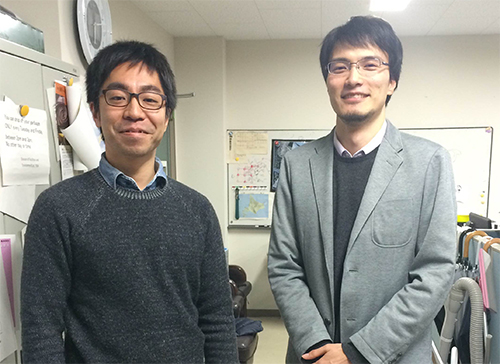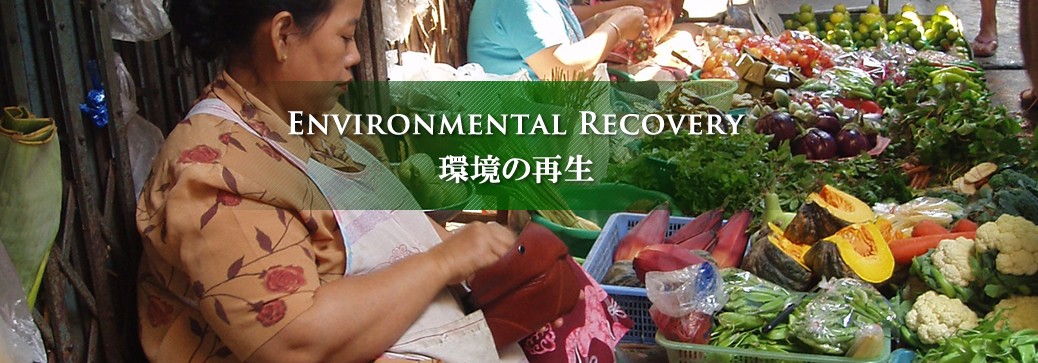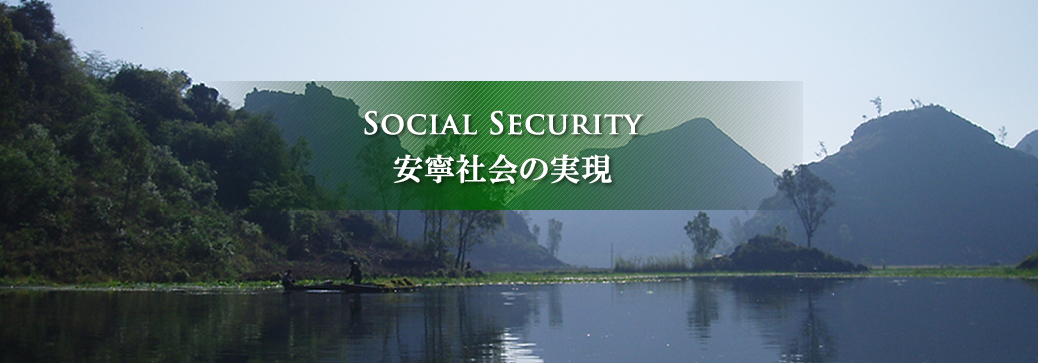All posts by NaitoChie
Dispatch Reports : Reports in 2014 Acudemic Year (H26):Goki Eda
| Goki Eda (Assistant Professor/Institute of Advanced Energy) |
[National University of Singapore] | Feb., 2015 |  [1] |
The Lists of Dispatched Researchers/ Reports in 2014 Acudemic Year(H26)>>
Dispatch Reports : Reports in 2014 Acudemic Year (H26)
Dispatched Researchers
| Patou Musumari Masika (Researcher/School of Public Health) |
[1][Mahidol University] | [1]Dec., 2014 – Feb., 2015 |
Researchers
| Chelsea Yu Xiao (Researcher/Graduate School of Letters) |
[1][National University of Singapore] | [1]Feb., – Mar., 2015 | |
| Suwat Chariyalertsak (Professor/School of Public Health) |
[1][Chiang Mai University] | [1]Dec., 2014 | [1] |
| Chamchan Chalermpol (Assistant Professor/School of Public Health) |
[1][Mahidol University] | [1]Nov., 2014 | [1] |
| Sureeporn Punpuing (Associate Professor/School of Public Health) |
[1][Mahidol University] | [1]Mar., 2015 | [1] |
| Dinh Quang Hung (Lecturer/Graduate School of Global Environmental Studies) |
[1][Hanoi University of Science and Technology] | [1]Jan., – Feb., 2015 | [1] |
| Ly Bich Thuy (Lecturer/Graduate School of Global Environmental Studies) |
[1][Hanoi University of Science and Technology] | [1]Jan., – Feb., 2015 | [1] |
| Van Dieu Anh (Researcher/Graduate School of Global Environmental Studies) |
[1][Hanoi University of Science and Technology] | [1]Dec., 2014 – Feb., 2015 |
[1] |
| Jishan Wu (Professor/Institute of Advanced Energy) |
[1][National University of Singapore] | [1]Feb., – Mar., 2015 | [1] |
The Lists of Dispatched Researchers/ Reports in 2014 Acudemic Year(H26)>>
The 14 th Kyoto-Aceh International Workshop “10 Years After Indian Ocean Tsunami”(2015/3/21)
The 14 th Kyoto-Aceh International Workshop “10 Years After Indian Ocean Tsunami”
Date: March 21, 2015 (Saturday) 13:30 – 16:00
Place: CIAS Seminar Room (No. 213), 2nd Floor, Inamori Foundation Building, Kyoto University
Program
- 1. Opening Remarks (Dr. Yamamoto Hiroyuki, CIAS, Kyoto University)
- 2. Screening Documentary Film “The Message of the Ocean: Notes and Hopes of the 10 Years Aceh Tsunami” (“Pesan Sang Samudera: Catatan dan Harapan 10 Tahun Tsunmia Aceh,” Director: Mahruza Murdani, Language: Indonesian/Acehnese, Subtitle:English/Japanese, 21 minutes, DVD screening)
- 3. Demonstration of Digital Application Tools for Disaster Management
TSUNAMI DATANG! (Online Education Game)
Aceh Tsunami Digital Archive (Smartphon app for Android/iOS)
Aceh Tsunami Mobile Museum (Android)
Aceh Tsunami Memory Hunting (Android)
http://www.cias.kyoto-u.ac.jp/~yama/bosai/app_BI.html - 4. Presentations and Panel Discussion
Ella Meilianda (Coastal geomorphology, Syiah Kuala University)
Ibnu Rusyidy (Geological Engineering, Syiah Kuala University)
Rahmad Dawood (Informatics, Syiah Kuala University)
*Language: Indonesian / Japanese
The Possibility of “Environmental Recovery ”
The ASEAN region is experiencing destruction of forests due to drastic urbanization, development of plantations, and mineral mining, all developments of rapid economic growth. Loss of biodiversity is also accelerating, and the lack of water resources is becoming an issue.
ASEAN countries are located in the tropics and subtropical regions. Because these are the areas most affected by climate change, the countries are becoming highly vulnerable to environmental changes entailed in economic growth.
A model of “environmental recovery” particular to ASEAN can be created by combining local knowledge with the fruits of Japan’s advanced scientific and technological research, using an interdisciplinary approach that integrates the sciences and the humanities. If such a model can be achieved, it should become globally attractive because it respects a country or region’s local character.
Realization of “Peaceful Society”
Along with Japan, ASEAN countries are located on orogenic belts around the Pacific Rim (“the Ring of Fire”). Since ancient times, they have been subject to the toll of disasters like earthquakes and volcanic eruptions.
Also, the populations of these countries are expected to experience rapid aging and declining birthrates in the twenty-first century.
From its cutting-edge science and technology, Japan has developed a variety of technologies to bring about “safety and security” for its citizens. It also has experience designing measures such as social welfare and nursing care systems optimized for a rapidly aging society in the twenty-first century. By applying either of these areas of achievement to the ASEAN region, those measures can be enhanced to become assets with greater universality.
At the same time, while ASEAN is a region that is one of richest in cultural diversity in the world. ASEAN countries have kept conflicts between ethnicities and religious adherents to a minimum. The region has a tradition of maintaining relationships of pluralistic co-existence.
A model of a “peaceful society,” constructed from ASEAN as the foundation by integrating understanding of the region’s unique cultural traditions with cutting-edge science and technology and social systems, holds the possibility of opening a grand gateway to the future of global society.
2nd International Workshop on Strengthening Collaborations (2015/02/05)
2nd International Workshop on Strengthening Collaborations
Date:February 5, 2015
Venue:Middle meeting Room, 3F, Inamori Foundation Memorial Building,Center for Southeast Asian Studies, Kyoto University
Program
- 13:30-13:40 Welcome remarks (Dr. Yasuyuki Kono, Director, CSEAS)
- Part1
Moderator: Dr. Masaaki Okamoto (CSEAS) - 13:40-13:55
Speaker:Dr. Nguyen The Luong (Hanoi University of Science and Technology) - 13:55-14:10
Speaker:Dr. Ly Bich Thuy (Hanoi University of Science and Technology) - 14:10-14:25
Speaker:Dr. Goki Eda (National University of Singapore) - 14:25-14:50 General comments
- 14:50-15:10 coffee break
- Part2
Moderator: Dr. Hiroyuki Yamamoto (Center for Integrated Area Studies) - 15:10-15:25
Speaker:Dr. Yin Soriya (Royal University of Phnom Penh)
“Measuring Cambodian Public Organizational Capacity” - 15:25-15:40
Speaker:Dr. Nop Sothun (Royal University of Phnom Penh)
“Towards Active Community Participation in Implementing Climate Change Adaptation Policy in Cambodia” - 15:40-15:55
Speaker:Dr. Van Dieu Anh (Hanoi University of Science and Technology) - 15:55-16:10
Speaker:Dr. Dinh Quang Hung (Hanoi University of Science and Technology) - 16:10-16:35 General comments
- 16:35-17:00 Closing remarks (Dr. Fumiaru Mieno, CSEAS)
Website opened
「Japan-ASEAN Collaborative Research Program on Innovative Humanosphere in Southeast Asia」
Website opened.
/en
The12th Aceh-Kyoto International Seminar (2014/12/25)
The12th Aceh-Kyoto International Seminar
Date:December 25,2014
Venue:Hyogo Prefecture Building, Syiha Kuala University
Banda Aceh, Indonesia
The11th Aceh-Kyoto Internatonal Symposium (2014/12/24)
The11th Aceh-Kyoto Internatonal Symposium
“Information and Communication Technology for Disaster Risk Reduction″
Date:December 24, 2014
Venue:Hermes Palace Hotel Banda Aceh, Indonesia


